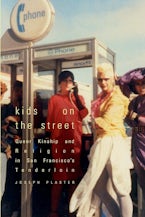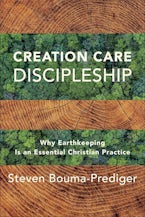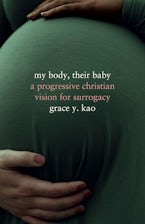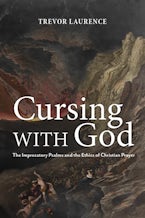- Home
- Transdisciplinary Theological Colloquia
- social science
- religion
- literary criticism
- Sexual Disorientation

Sexual Disorientation
Queer Temporalities, Affects, Theologies
Edited by: Kent L. Brintnall, Joseph A. Marchal and Stephen D. Moore
Series: Transdisciplinary Theological Colloquia
368 Pages
- Paperback
- ISBN: 9780823277520
- Published By: Fordham University Press
- Published: November 2017
$35.00
Each year, the Transdisciplinary Theological Colloquium (TTC) gathers together in Madison, New Jersey to hear from a superb ensemble of scholars whose work is at the cutting edge of religious studies. Moreover, each year, the conveners invite a theorist to serve as both respondent and participant. Sexual Disorientations is the published proceedings of the 14th annual meeting of the TTC held September 26–28, 2014 at Drew University. For the 2014 colloquium, the conveners chose the themes of affect and temporality, gestured toward the various “turns” in queer theory in the call for papers, and invited theorist Elizabeth Freeman as the year’s respondent-participant. At the heart of the debate between various turns in queer theory are the political ramifications of legibility. That is, to be readable is to already be incorporated into that which decides already what and how you are—the script you think you have developed as being different, or indeed queer, is instead already marketable and commodifiable.
The authors in this volume are made up of a few graduate students (at the time), junior faculty, and tenured faculty in the fields of women’s and gender studies, theology, philosophy, and performance studies. Each of the seventeen authors contend with this issue of legibility, I would argue, in two broad arenas: biblical interpretation and theological studies. This is an artificial division, but my goal in dividing the text in this way is to situate the kinds of questions each essayist is trying to answer, what is at stake in each of their answers, and the kinds of commitments their respective disciplines might necessitate. Given the limitations of a review style essay, I am forced to confine myself to few examples that exemplify the questions being asked in each arena.
With regard to the first category, the essays deal almost exclusively with the texts of the Christian scriptures, with two exceptions. Notably, all of the essays point to uneasy futurities. Brock Perry, for example, provides a queer reading of death in the Apocalypse of Peter, which acknowledges the eternal presence and persistence of the dead in the lives of the living. In offering a reading of Apocalypse of Peter, Perry points towards how queer temporalities demand an expansive understanding of canon. Jacqueline Hidalgo’s essay likewise expands canonicity by examining Cherríe Moraga’s essay entitled “Codex Xeri: El Momento Histórico” (in The Last Generation, South End Press, 1993). In her essay, Hidalgo argues Moraga’s codex and use of the term “codex” shows how notions of “scripture” have always been consummate with colonization, and thus “codex” and “codices” allow for more expansive understandings of revelation for colonized peoples. Conversely, Joseph A. Marchal’s essay on 1 Corinthians acknowledges how his essay might be read as passé inasmuch as he deals with feminist questions within a Pauline text. However supposedly outdated his essay might read, Marchal shows how the readings are important because they are failures that contain possibilities and glimpses of queer futurities. Other essays in this section include: Kent Brintnall’s Edelmanian approach to Lot’s wife; James N. Hoke’s essay on chrononormativity and Paul’s letter to the Romans; Maia Kotrosit’s essay on barebacking, HIV, and the gospel of Mark; and Eric A. Thomas’s queer Africana interpretation of Revelation’s epilogue.
With regard to the theological essays in this volume, Mark D. Jordan’s creative essay traces some of the difficulties of formulating a queer theology course. His essay is more like a strings of thoughts, each numbered and only thematically related to the other, compiled together into essay form as opposed to what might traditionally be expected from an academic conference or an academic essay. Lamenting how many times he has come to pad and paper to write up a course on queer theology only to come up empty-handed, Jordan points to the pioneering work of Marcella Althaus-Reid as a way of embracing a something, but not tightly enough to not embrace something else. Similarly, Karen Bray’s essay on challenging neoliberalism offers ways that disorder and madness provide ways of dealing with political, economic, and theological over-determinations. Drawing on work in crip theory and radical political theology, Bray’s essay argues that while the future might be disordered, it still requires a doing that is always engaged in undermining the ubiquity of neoliberalism. Juxtaposed to this, Laurel C. Schneider’s essay points to how the antisocial turn in queer theory ultimately reinscribes some of the problems it seeks to overturn, namely regarding bodies, purity, and hope—all of which she argues find their way back into even the most radical theories. Other essays in this section include: Brandy Daniels critical engagement with Sarah Coakley; Linn Marie Tonstad’s argument that radical thinking might already be usurped by neoliberalism; Ann Pellegrini’s engagement with Freudian psychoanalysis and queer time; and Karmen MacKendrick’s essay on God’s extratemporality in St. Augustine and Edmond Jabès.
The volume also includes responses by Mary-Jane Rubenstein to Karmen MacKendrick, and Catherine Keller to Mark Jordan, immediately following their respective essays. As mentioned above, Elizabeth Freeman provides an afterword that serves as a response to the whole of the conference. For those unfamiliar with some of the nuances between “turns” in queer theories, the editors helpfully provide an introduction that not only situates the essays, but also serves to provide some of the necessary background information to understand some of the questions being asked in the chapters that follow it. In some cases, the essays might read as if they do not belong in a volume that seeks to map and trace trajectories of queer temporalities. However disparate a reading of Sexual Disorientations might be, I argue that this volume performs the underlying argument. Indeed, if queer temporalities are multiple, seem alien, or even ineffable, how does one go about cataloging all their possibilities? Therefore, while the essays may seem to lack a metanarrative, this is precisely their goal. Overall, Sexual Disorientations is a welcome edition and addition to the already burgeoning literature on affect, temporality, and queer studies in religion.
Alejandro Stephano Escalante is a doctoral student in Religious Studies at the University of North Carolina, Chapel Hill.
Alejandro Stephano EscalanteDate Of Review:March 19, 2018
Elizabeth Freeman is Professor of English at University of California, Davis.
Kent L. Brintnall is Associate Professor of Religious Studies at the University of North Carolina at Charlotte.
Joseph A. Marchal is Associate Professor of Religious Studies at Ball State University.
Stephen D. Moore is Edmund S. Janes Professor of New Testament Studies at the Theological School, Drew University.











